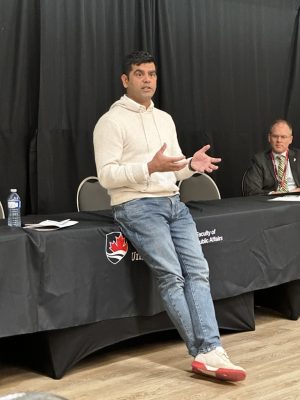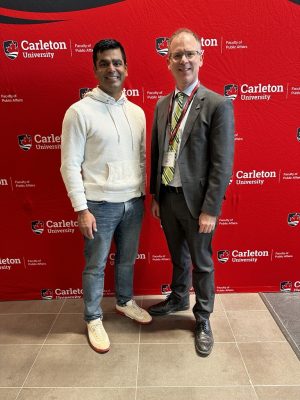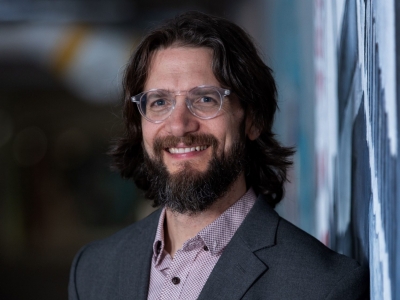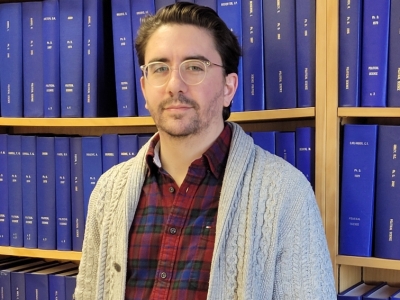Carleton political science alumnus Raj Venugopal, General Manager for International Affairs and Global Business at the Canada Post Corporation, recently met with Faculty of Public and Global Affairs graduate students during the Emerging Perspectives graduate conference. Venugopal earned a PhD in Political Science in 2010. He described his career with the Canada Post Corporation and offered advice to students who are seeking jobs outside of academia.

Raj Venugopal speaking to students at the Emerging Perspectives graduate conference.
What can students do to stand out in the non-academic job market?
“Graduate students seeking employment outside of academia would be well advised to identify transferable skills gained through studies that are applicable to the sector in which they would like to work. Beyond the (predictable) ability to conduct research, they might establish their value proposition to an employer by drawing attention to their ability to develop strategies and make action-oriented recommendations, manage projects, analyze data, communicate effectively, solve difficult or complex problems, think critically, etc.
It is also important to stand up a strong professional network to gain insight into sectors of the labour market that may be hard to find (or even hidden) and identify opportunities. Going a step further, it can be interesting for an employer to consider applicants who are able to leverage their formal education with emerging trends and tools, such as application of AI to research or analytical processes.”

Raj Venugopal with his PhD supervisor Jonathan Malloy (Associate Dean, Research and Graduate)
How does communication differ in academia vs. non-academic workplaces?
From a personal perspective, I’ve had to compartmentalize how I communicate within academia versus communicating with non-academic partners and colleagues, and be mindful of what the purpose of the organization is and how I am trying to get my message across.
In a predominantly thought-oriented environment and audience, there can be a tremendous tolerance and appetite for exploration of theoretical and philosophical concepts—depending on the discipline of course.
In non-academic environments, however, the ethos of the organization may require the individual to get to the point quickly and without caveats and qualification. This can be a jarring transition depending on the people and organizations involved, and something to keep in mind when writing briefing notes, analysis, recommendations, etc.
But at the same time, I would urge caution in assuming that a non-academic employer or audience does not have an appetite for a seemingly tangential analytical modus operandi. In some cases, bringing a longer form analysis of a particular issue may be precisely what causes an academic to shine in a job outside of academia!
Wednesday, April 10, 2024 in Alumni Profile, Department of Political Science, General, News
Share: Twitter, Facebook



